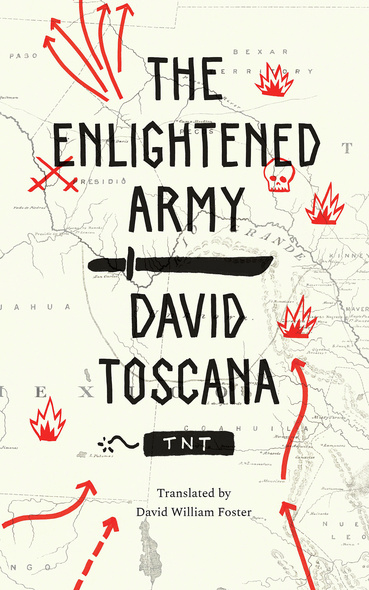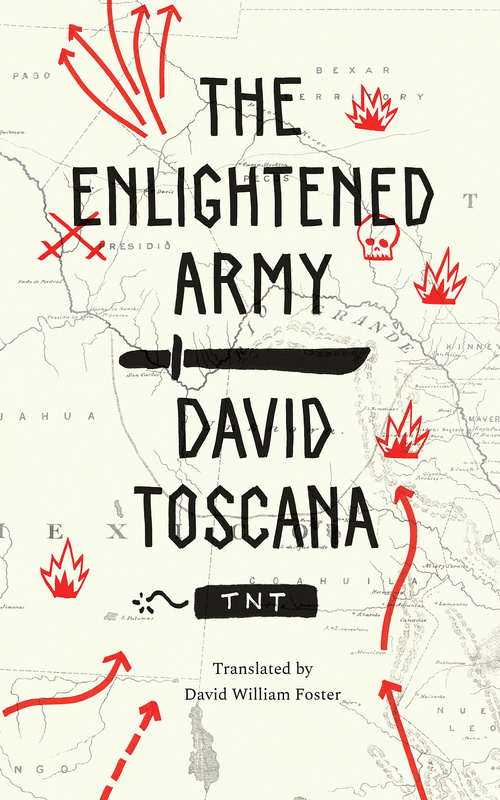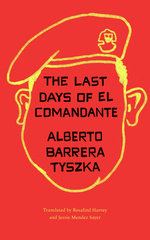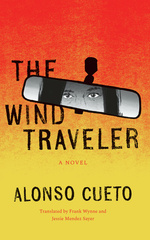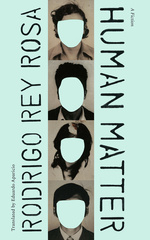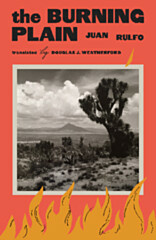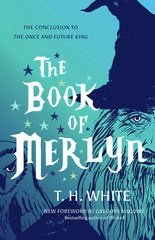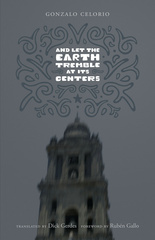Ignacio Matus is a public school history teacher in Monterrey, Mexico, who gets fired because of his patriotic rantings about Mexico’s repeated humiliations by the United States. Not only did Mexico’s northern neighbor steal a large swath of the country in the Mexican-American War, but according to Matus it also denied him Olympic glory. Excluded from the 1924 Olympics, Matus ran his own parallel marathon and beat the time of the American who officially won the bronze medal. After spending decades attempting to vindicate his supposed triumph and claim the medal, Matus seeks an even bigger vindication—he will reconquer Texas for Mexico! Recruiting an army of “los iluminados,” the enlightened ones, Matus sets off on a quest as worthy of Don Quixote as it is doomed. David Toscana is one of Latin America’s leading contemporary writers, and his books have won several prestigious awards, including the Casa de las Américas Prize for The Enlightened Army. The novel’s treatment of the troubled relations between Mexico and the United States makes it highly topical at a time when immigration and border walls capture headlines, while its lyrical writing and humorous take on the absurdities of everyday life offer timeless pleasures.
Toscana is ready to join the ranks of Latin America’s finest novelists.
David Toscana deserves to be labeled the Latin American Cervantes of the twenty-first century! The Enlightened Army is like a little Quixote.
Toscana’s writing proves overall to be witty and disarming, alluding amusingly to Latin American writers such as Gabriel García Márquez and Carlos Fuentes.
David Toscana may enter the pantheon of great Latin American authors.
What makes for a welcome window into history? The experiences of the frustrated hero of...The Enlightened Army and his quixotic quest to both conquer Texas and receive his due for his long-distance running achievements offer plenty of them. It's no coincidence that much of the action of this novel overlaps with the 1968 Summer Olympics, and the handful of temporal jumps forward add an unexpected sense of tragedy to the proceedings.
The Enlightened Army is a delightful exploration of absurdity and delusion as one man attempts to conquer Texas on behalf of an uninterested Mexico.
[A] very enjoyable book, even though things do not go quite right for [Igancio Matus] but he is certainly one of the obsessive fools of literature, whom we cannot help having a grudging admiration for in his foolishness.
The Enlightened Army isn't just an amusing tale. Underlying the bizarre story is a subtle analysis of the relationship between Mexico and the US through its surreal comparison of the two countries…an enjoyable romp, a clever look at Mexico past and present, as well as an examination of the wisdom of fools and wanting to make something of your life.
Creative and quite entertaining.
Absurd and comic but with a bitter edge, this novel takes a unique and refreshing approach to the darker aspects of Mexico's relationship to the United States.
Toscana's novel pokes fun at the history of the US-Mexican border, lambasting those who cling to either side of it…The Enlightened Army satirizes the tension between Mexico and the US and the struggle for control over a dynamic region.
A native of Mexico, David Toscana is the author of several novels, three of which have been translated into English—Tula Station, Our Lady of the Circus, and The Last Reader. He has been shortlisted twice for the Rómulo Gallegos International Novel Prize and was awarded the 2017 Xavier Villarrutia award for his novel, Olegaroy. He lives in Mexico and Poland.
David William Foster is Regents’ Professor of Spanish and Women and Gender Studies at Arizona State University, where he also leads the Brazilian Studies Program.

